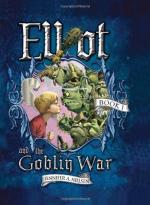“Oh, if I had only kent! You maun keep yoursel’ as free frae worry as possible, an’ try an’ get better,” he went on, trying to speak as lightly as possible. “Keep up your spirits, an’ you’ll maybe soon be a’ better.”
“Aye, Rob,” she said, “but it’s no’ easy. An’ I hae been gettin’ waur instead o’ better. I ken mysel’ that I’m no’ improvin’, an’ I often think it wad hae been better if I had died. When folk don’t want to live—when they’ve nothing to be happy aboot they are better to dee!”
“But you maunna talk like that, Mysie,” he said again. “You’ll get better yet, an’ be as happy as ever you were. It is only because you are ill noo an’ you sae weak, that mak’s you talk like that. An’ forby you maun mind that there are ither folk wha’ll be vexed if you dinna get better. Your faither and your mither wad like to see you weel an’ happy, an’ oh, Mysie, Mysie, I want you to get weel!” he broke out passionately—pleadingly, the misery in his voice going to her heart as it cried to her, ached for her, and suffered for her. “Wad you hae married me, Mysie, if I had asked you afore you went awa’?” and his hands were again stroking tenderly the brown hair and patting the thin cheeks as he spoke and plead.
“Ay, Rob,” she answered simply, “I wad hae married you. I sometimes think yet that I’ll never marry onybody else. As a lassie I aye dreamed in my ain mind that I’d be your wife. It’s awfu’ hoo the things that folk want maist are aye the things they never get!”
“Mysie, wad you marry me yet?” he asked, impulsively. “Jist this minute? An’ I’ll tak’ you hame, an’ naebody will ken onything. I’ll take a’ the blame, an’ you can say that it was me. I’ll nurse you back to health again wi’ my mither’s help an’ naebody need ken the richt wye o’ it!”
“No, Rob,” she said after a short pause. “I couldna dae that. It wad neither be fair to you or me, nor to onybody else.”
“But, Mysie,” he went on in the low tender voice that was so difficult to withstand, “you don’t like Peter weel enough to be his wife. You say you never intended to be onybody’s wife but mine; an’ what wye should you no’ do as I propose? You ken I’ll never do onything else but love you. You ken that, Mysie!”
“Ay, Rob,” she answered, “I ken a’ that. Naebody kens it better than me noo; and that’s what mak’s it sae awfu’ hard to refuse. But it wadna be richt at a’, an’ that’s a’ that can be thocht aboot it. You maunna ask me ony mair.”
“But I will ask you,” he cried in another burst of passion, “an’ I’ll keep on askin’ you. You ken you are mine, an’ naebody else has a richt to you. I love you, Mysie! Oh, can you no’ see, lassie, that it wad be a’ richt if you’d do as I want you?”




